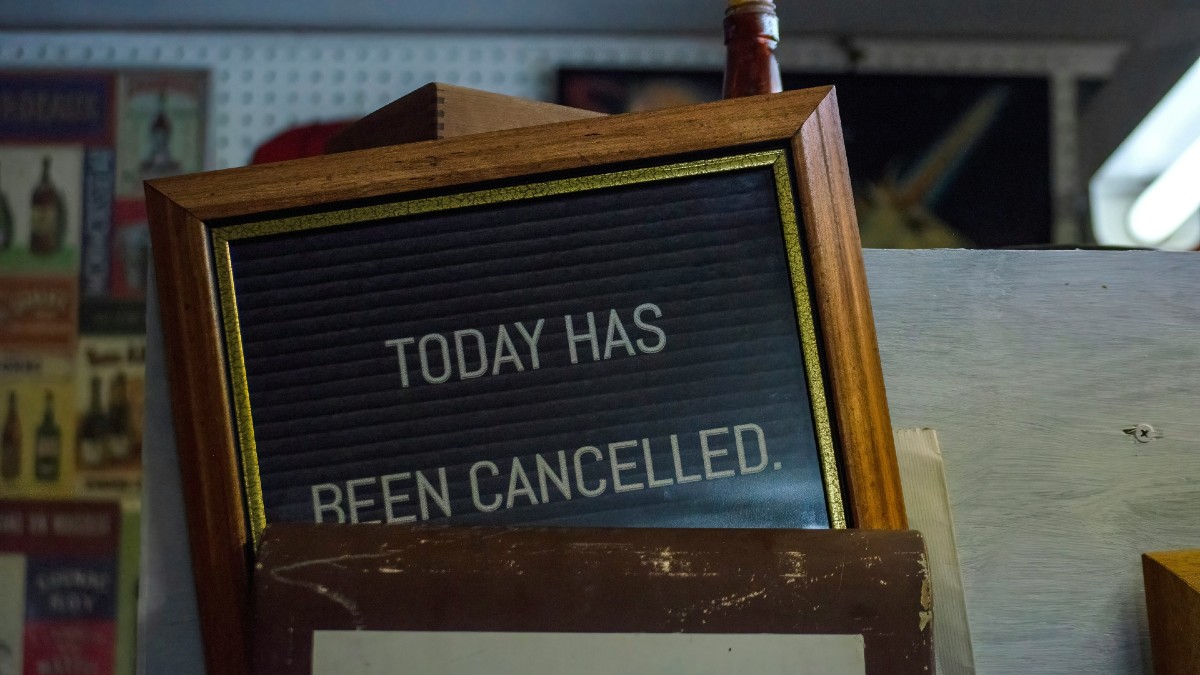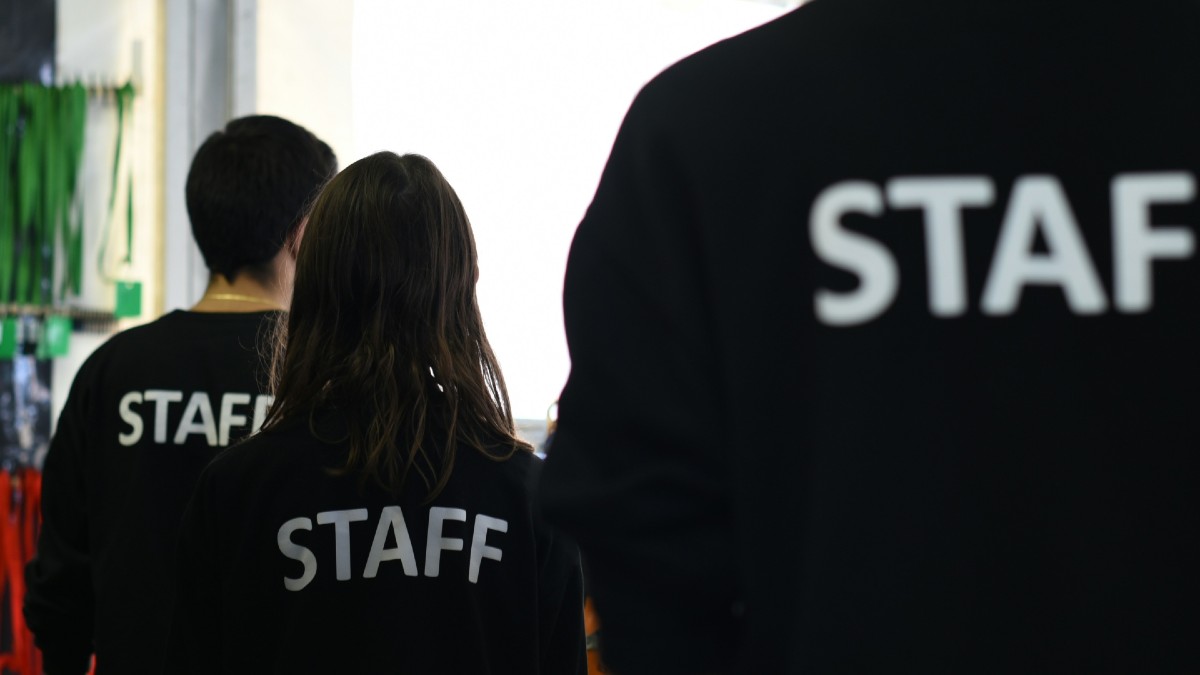
Written by: Cara Tirona
February 5, 2025
Managing large-scale events requires expert coordination, attention to detail, and strategic planning. From corporate conferences to massive expos, these events can be daunting without the right approach. In this blog, we’ll cover the essential best practices that every event planner should follow when managing large-scale events and planning successful events.
What Is Considered A Large-Scale Event?
A large-scale event, by definition, typically involves a significant number of attendees, extensive logistical requirements, and often multiple stakeholders. The scale can vary depending on the industry, context, and goals of the event. Here are some characteristics that can help distinguish large-scale events:
Attendee Count
Large-scale events usually have a high participant count, often ranging from hundreds to thousands of attendees. This could include festivals, trade shows, conventions, or corporate galas. The larger the audience, the more complex the management becomes.
Venue Size and Complexity
The venue for a large-scale event is often larger and may involve multiple spaces such as ballrooms, breakout rooms, outdoor areas, and exhibit halls. The coordination of these spaces to accommodate different activities simultaneously—such as keynote speeches, workshops, and exhibitions—adds a layer of complexity.
Logistical Considerations
Managing the logistics of a large event can be overwhelming. This involves catering, transportation, registration, security, audio-visual needs, accommodations, and more. The logistics must align seamlessly to ensure a smooth experience for all participants.
Budget
Large-scale events often come with substantial budgets that need careful planning and management. Effective budget management is critical to ensure that the event meets its objectives without financial overspending. The event manager must establish a comprehensive budget early in the planning process. This budget should encompass all anticipated expenses, including venue costs, catering, staffing, event marketing, entertainment, and technology requirements.

Event Planning Strategies for Large-Scale Events
Planning a large event starts with having a solid strategy. Without one, even the most experienced event planners can feel overwhelmed by the sheer scale and complexity.
Defining Clear Objectives and Event Goals
The first step in any large-scale event management process is defining the event’s goals. Is it to build brand awareness, foster networking, or educate attendees? Knowing the objectives helps shape every decision moving forward.
These objectives should be Specific, Measurable, Achievable, Relevant, and Time-bound (SMART). This framework ensures that you have precise targets to aim for and a clear method of evaluating success post-event.
After defining your objectives, communicate them clearly to your team, stakeholders, and any partners involved in the planning process. This ensures that everyone is aligned and working towards the same outcomes, making coordination more efficient.
Engaging Stakeholders
Engaging stakeholders early in the planning process is crucial. Stakeholders can include sponsors, speakers, vendors, and participants. Their insights can provide valuable perspectives that can refine your objectives and the overall design of the event.
Conduct surveys or hold focus group discussions to gather feedback and expectations. This not only helps you understand the needs of your stakeholders but also fosters a sense of ownership and commitment to the event's success.
Budgeting Wisely
Once you have a clear set of objectives and stakeholder input, the next step is to set a realistic budget. Budgeting is one of the most critical aspects of event management, especially for large-scale events where costs can quickly escalate. Your event budget should include a detailed breakdown of all expected expenses, including venue rental, catering, technology, entertainment, marketing, and staffing. Here are some tips:
Identify Costs: Break down potential costs by category, including venue, catering, marketing, and entertainment. This allows for better visibility into where funds will be allocated and helps identify areas that may need more financial attention.
Allocate Priorities: Not all elements of an event hold the same weight. Once you have a comprehensive cost breakdown, allocate priorities based on your defined objectives. For example, if networking is a key goal, consider investing more in high-quality catering and engaging entertainment to foster interaction among attendees.
Include Contingency Funds: Always anticipate unforeseen expenses by setting aside 10-15% of your overall budget as a contingency fund. This will act as a financial buffer and help keep the event running smoothly even when unexpected costs arise.
Track Expenses: Utilise budgeting tools or software to track expenses throughout the planning process. Regular monitoring of where your money is going can prevent budget overruns and help you make informed decisions about reallocating funds if necessary.

Choosing the Right Venue
Choosing the right event space is a cornerstone of successful large-scale event management. The venue directly impacts attendees’ experiences and can influence the logistics of the event.
Assess Event Location: Consider accessibility for your attendees. Is the venue located near public transportation options, major highways, or airport hubs? Ensure that it's easy for guests to get there to encourage participation. Additionally, research the surrounding area for hotels, restaurants, and other amenities that attendees might appreciate.
Best Questions to Ask Venues for Event Quotes
Capacity and Layout: Evaluate the venue’s capacity to accommodate your expected number of guests comfortably. A space that's too small can create a cramped atmosphere, while an excessively large venue may make it difficult to cultivate a sense of intimacy and engagement. Consider the layout of the space and how it can be configured to support your event's activities—whether it's networking sessions, presentations, or breakout activities.
Choosing the Ideal Event Layout for Your Next Big Event
Facilities and Technology: Analyse the facilities and technological capabilities the venue offers. Check if there is reliable Wi-Fi, audio-visual equipment, event technology and necessary technical support readily available. Knowing whether the space includes features such as stage setups, presentation screens, or microphones can be pivotal in facilitating smooth communication during the event.
Ambience and Parking: The venue's ambience should align with the theme and tone of your event. Whether aiming for a formal conference or a casual get-together, the venue's decor and atmosphere should reflect that intention. Additionally, consider the proximity and availability of parking options for your guests. Ample parking or nearby transportation alternatives can significantly affect attendance levels and reduce stress on the day of the event. When selecting a venue, the availability of additional amenities and services can greatly enhance the overall experience for your attendees.
Catering Options: Explore whether the venue offers in-house catering or if you need to hire an external catering service. A venue that provides catering can simplify logistics and potentially save costs. Make sure to discuss menu options, dietary restrictions, and serving styles in advance.
Accessibility and Inclusion: It's crucial to ensure that the venue is accessible to everyone, including those with disabilities. Look for venues that comply with the Americans with Disabilities Act (ADA) standards, providing ramps, elevators, and restrooms that cater to all guests. An inclusive environment reflects a commitment to guest comfort and can significantly enhance participation and satisfaction.
Breakout Spaces: Depending on the nature of your event, having access to multiple rooms or breakout areas can be beneficial. These spaces allow for smaller group discussions, workshops, or networking sessions, providing attendees with a chance to engage more intimately and effectively. A flexible venue with various-sized rooms can help accommodate different formats throughout the event.
Acoustics and Noise Levels: A venue’s acoustics play a vital role in communication, particularly if your event includes speakers or presentations. Evaluate how sound travels in the space to ensure that attendees can hear presentations without distractions from external noise, such as nearby venues or traffic. A room with good acoustical properties enhances the overall experience for your guests.
Attendee Safety: Security personnel play an essential role in ensuring the safety of all attendees at large-scale events. Consider hiring professional security staff who are trained in crowd management and emergency response. Assess the venue’s security measures, such as surveillance systems and emergency exits, to guarantee a quick and organised response should any issues arise. Create a safety plan that outlines protocols for various scenarios, including medical emergencies, natural disasters, or unexpected disruptions. Communicating this plan to your guest speakers, staff, and key volunteers ahead of time can foster a sense of preparedness and calm. Crowd control measures should also be in place, particularly in high-traffic areas, to guide attendees smoothly and minimise the risk of accidents. Consider using barriers, signage, and designated entry and exit points to manage the flow and maintain order during the event.

Building an Event Timeline
Creating a realistic event timeline is essential for managing a large-scale event effectively. This timeline serves as your roadmap, helping to ensure that all tasks are completed on schedule and that the event runs smoothly from start to finish. Having ample time for each task is crucial, as it allows for adjustments and unexpected delays that may occur during the planning process. Here are some best practices for building an effective event timeline:
Establish Key Milestones
Begin by identifying major milestones in the planning process. These can include deciding on the event date, securing the venue, finalising the guest list, and confirming vendors. By establishing these milestones, you can break down the planning process into manageable parts, making it easier to track progress and delegate tasks.
Create a Detailed Checklist
Once you have your milestones established, it’s important to create a detailed checklist for each one. This checklist should outline all necessary tasks that fall under each milestone. For example, if one of your milestones is securing vendors, your checklist may include:
- Research potential vendors for catering, audio/visual, and décor.
- Schedule meetings with shortlisted vendors.
- Compare pricing and availability.
- Obtain final quotes and make a selection.
- Review contracts and finalise agreements.
By breaking these tasks down, you can ensure that no important detail is overlooked and can easily assign responsibilities to your team members.
Set Deadlines and Allocate Responsibility
For each task in your checklist, establish clear deadlines. This not only helps keep your planning on track but also encourages accountability among team members. Assign specific tasks to individuals or groups, keeping in mind their strengths and expertise. For instance, if you have a team member with strong negotiating skills, they might be tasked with vendor negotiations. Be sure to communicate these responsibilities clearly and check in regularly on progress.
Avoid These Common Mistakes When Planning an Event
Implement a Communication Plan
Effective communication is critical when managing a large-scale event. Develop a communication plan that outlines how your team will share updates and address issues. This can include communication channels, frequency of meetings, and methods for reporting problems or concerns. Consider using project management tools or platforms that facilitate both communication and collaboration among team members. Here are some suggestions to create an effective communication plan:
- Define Communication Channels: Determine which platforms will be used for different types of communication. For instance, you might use email for formal updates, instant messaging apps for quick questions, and video conferencing for team meetings.
- Schedule Regular Meetings: Set up consistent check-in meetings leading up to the event. Depending on the timeline, these could be weekly or bi-weekly, gradually increasing to daily as the event date approaches. Use these meetings to address ongoing tasks, share updates, and discuss any potential challenges.
- Establish a Reporting System: Create a system for reporting issues that arise during the planning process. This could involve a shared document or a designated point person where team members can file concerns. Having a clear avenue for reporting helps ensure that issues are addressed promptly and efficiently.
- Utilise Visual Aids: A visual representation of the event planning process can be an effective communication tool. Consider using Gantt charts, flowcharts, or dashboards to depict timelines and task responsibilities. This can help keep everyone on the same page regarding who is responsible for what and when things are due.

Managing Large Conferences and Expos
Industry conferences and expos are among the most complex large-scale events. With thousands of attendees and a variety of activities happening simultaneously, these require meticulous attention.
Audience Engagement Tactics
Keep attendees engaged throughout the event by offering interactive sessions, networking opportunities, and hands-on experiences. Use event apps to facilitate networking and provide updates. This enhances the attendee experience and promotes a sense of community.
On-Site Coordination and Contingency Planning
The day of coordination is when everything comes together—or falls apart. Designate a team specifically for troubleshooting on-site issues. Have backup plans ready for weather changes, technical glitches, or staffing shortages.
When managing large-scale events, having robust contingency plans is not just a strategic advantage; it’s a necessity. An unanticipated issue can arise at any stage, and how you respond can significantly impact audience engagement and overall event success. Identify potential risks and develop strategies and emergency response plans that not only mitigate these risks but also enhance the attendee experience.
Post-Event Follow-Up
The event doesn’t end when the doors close. Post-event follow-ups, such as sending surveys and gathering feedback, are crucial for planning even better large-scale events in the future.
Collecting feedback from event participants is an invaluable aspect of the post-event process. Not only does it provide insights into what worked well, but it also highlights areas for improvement. Crafting targeted surveys that ask specific questions about various event aspects—such as venue selection, speaker quality, session relevance, and overall attendee experience—ensures you gather actionable data.
Conclusion: Get the Right Venue for Your Large-Scale Event
Large-scale event planning is a daunting task, but with the right strategies, tools, and team, it’s achievable. Meticulous planning is essential, and one of the most critical components of that planning is choosing the right event venue. Whether you're planning a conference, expo, or large-scale corporate event, finding the right venue is key. With VenueNow, you can simplify the process by searching for venues that meet your exact needs and getting expert help through our free venue-finding service. Let VenueNow help you make your next large-scale event a success.
Looking for an event venue to hire?
VenueNow has you covered with over 2,000 venues across Australia ranging from large event spaces to small meeting rooms. Find your perfect venue for hire faster than anywhere else.
Follow us on social media to stay up to date with the latest news
Customers
Want to get in contact?
Call our support team on 1300 647 488 during business hours AEST.
Follow Us
© Copyright VenueNow 2026 | SPARE GROUP PTY LTD | ABN 22 607 830 302











